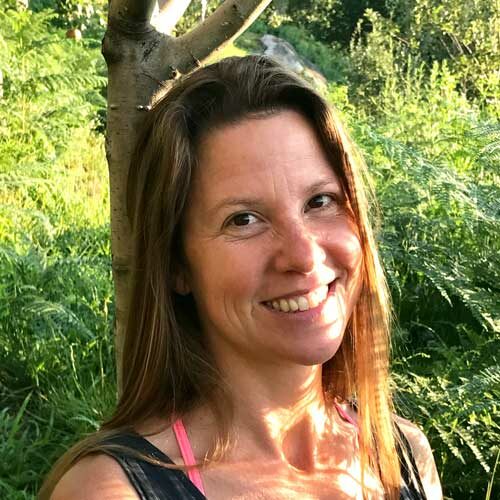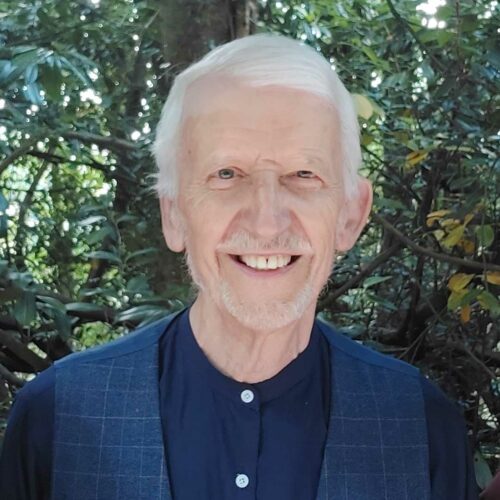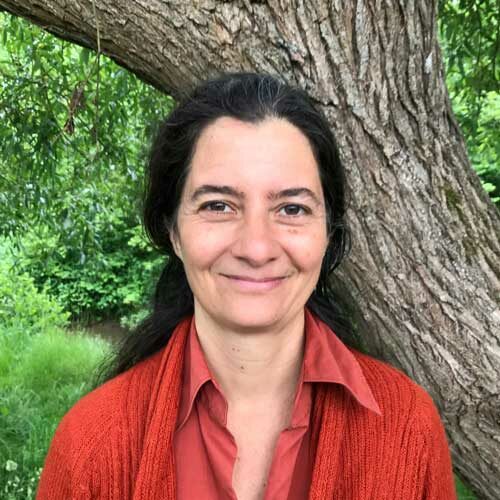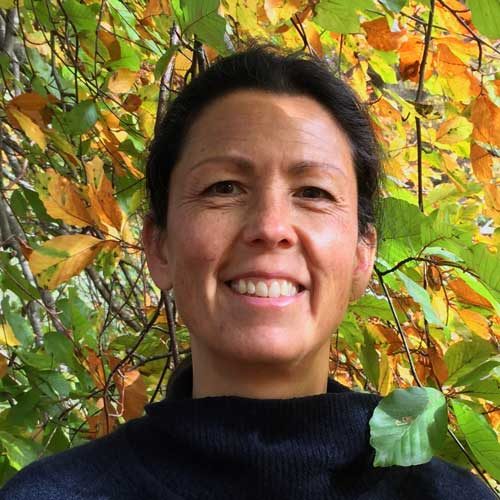Life is never only good or only bad, pleasant or unpleasant, comfortable or uncomfortable, just or unjust. Cultivating a wide spacious perspective within the reality of uncertainty gives rise to a bigger capacity to meet our lives more gently, kindly, and clearly, with more stability and more love. Join us as we explore perspectives and practices to help integrate the everyday experience of impermanence with steadiness, balance, and equanimity.
With Heidi Bourne recorded on May 12, 2024.
Found our teachings useful? Help us continue our work and support your teachers with a donation. Here’s how.
Discover more from the Dharma Library
-

Daily Meditation Recordings, with Ayala Gill – Week of June 26, 2023
This week’s topic is “Living in Sacredness”. Meditation is more than a practice of being present. The way in which we are present determines whether we reinforce habits of separation, or re-weave the fabric of sacredness. During this week we will explore the sacredness of body, breath, consciousness, emotions and beliefs. Returned to the embrace of sacredness, we plant seeds of Love in a world of separation.
-

Can We Know the End of the World?
Recorded :
February 7, 2021 We find ourselves concerned with the state of the world yet we do not live in one world. Our inner world reveals significant differences from the outer world. The outer world offers a variety of impressions to people. It is not unusual to claim we live in different worlds. The one world view seems to…
-

Integrity – A Bridge Over Troubled Water
Recorded :
July 12, 2020 In challenging situations, we can lose our ground. Not knowing what to rely on, we are liable to reactivity, either withdrawing or lashing out. Fear and anger are very human reactions to what we perceive as injustice or threat. While there is no need to condemn us for experiencing them, our hearts might yearn for…
-

Daily Meditation Recordings, with Ulla Koenig – Week of Jan 16, 2023
This week’s theme is “Change, Loss and Dying: Meeting the Common Denominator”. When we come in touch with the fragility of our existence, it is only natural that fear or sadness might well up. The constant inward and outward change contrasts with our lack of control. To experience change, loss and death, is a substantial challenge for all of us. The Buddha did not shy away from these common human denominators, but offered perspectives and practices which allow us to meet them with compassion, while enabling the heart to rest in love and peacefulness.
-

Protecting the Mind
Recorded :
April 20, 2025 The encounter with sensory experiences can lead to insight and calm, or reactivity and suffering. How do you guard your mind in the midst of a daily barrage of sensory input? How do you protect your mind so that tranquility and wisdom will be well established? The Buddha encouraged restraint of the senses, but this…
-

Daily Meditation Recordings, with Zohar Lavie – Week of May 6, 2024
This week’s topic is “Finding Balance in the Midst of Uncertainty”. Dharma teachings support us in meeting the wholeness of our lives with interest, gentleness and creativity. Acknowledging the inconstancy and flux of our experience, both joys and sorrows, with sensitivity and care nourishes a deep wellbeing. Through the week we will cultivate a nurturing environment through which to connect with challenging aspects of the human condition. By prioritising spacious tenderness over contraction and demand, we can find the liberation of the true heart’s release.
-

Daily Meditation Recordings, with Jaya Rudgard – Week of 21 April, 2025
We’re delighted to have Jaya Rudgard guiding our Daily Meditation sessions this week. May these sessions support and deepen your practice.
This week’s theme is: Still Here, Still Now: Waking Up to Life
As we develop our ability to remain present to experience our insight into the nature of that experience deepens. We’ll continue to explore this week how mindfulness can lead not just to less stress here and now but to the kind of seeing that will eventually free the heart-mind from all its self-created suffering.
Our Dharma Library thrives through collective generosity. Your donation helps sustain this offering for our entire community.
-

Daily Meditation Recordings, with Sophie Boyer – Week of 28 April, 2025
We’re delighted to have Sophie Boyer guiding our Daily Meditation sessions this week. May they bring peace and depth to your practice.
This week’s theme is: Groundedness to Groundlessness
Grounding oneself in this very moment to realise that what we are looking for has never left us. It has always been here and is not bound to anything. It is an invitation to let life inform every moment without a “me” being in charge – a groundless home.
Sophie Boyer will lead our Daily Meditations this week, inviting us to engage with this paradoxical dynamic.Grounding ourselves in this very moment to discover that what we’re searching for has always been here. It has always been here and is not bound to anything. Sophie Boyer leads our Daily Meditations this week, inviting us to explore this beautiful paradox: finding a groundless home where life informs every moment without a separate “me” being in charge. Join us as we practice together in this space of gentle revelation and discovery.
Our Dharma Library thrives through collective generosity. Your donation helps sustain this offering for our entire community.







Discussion